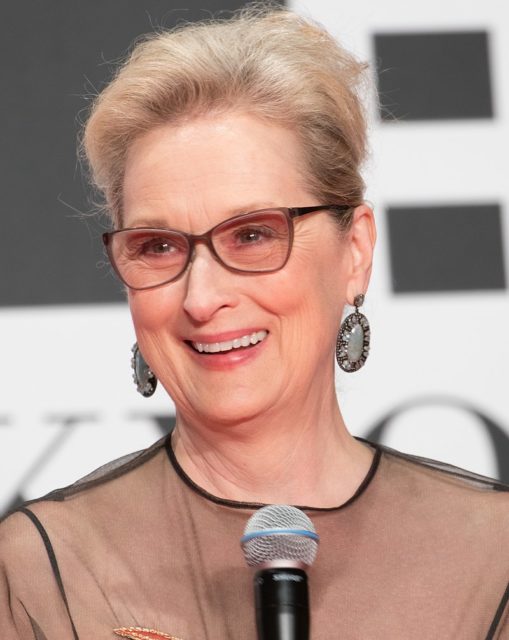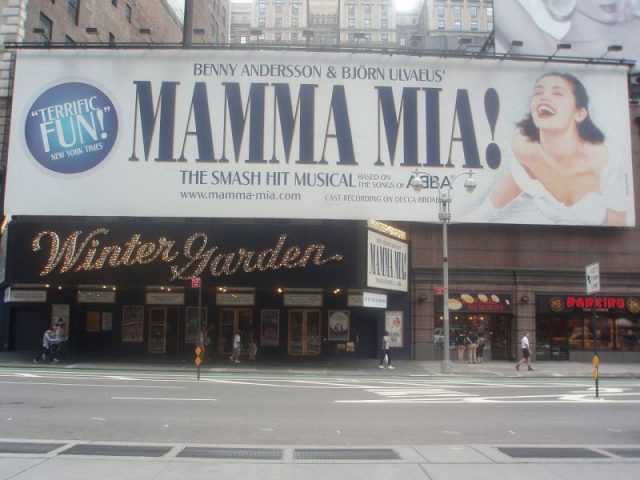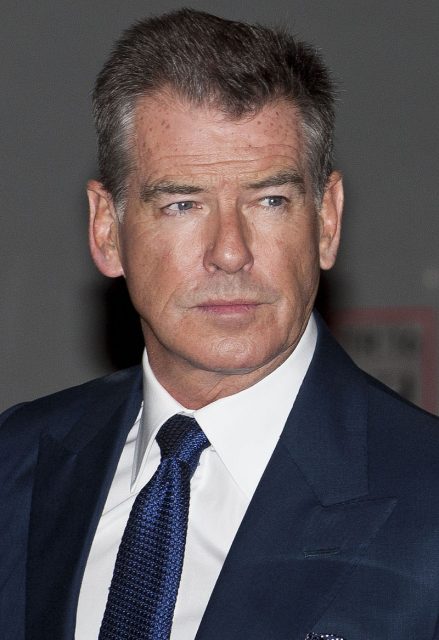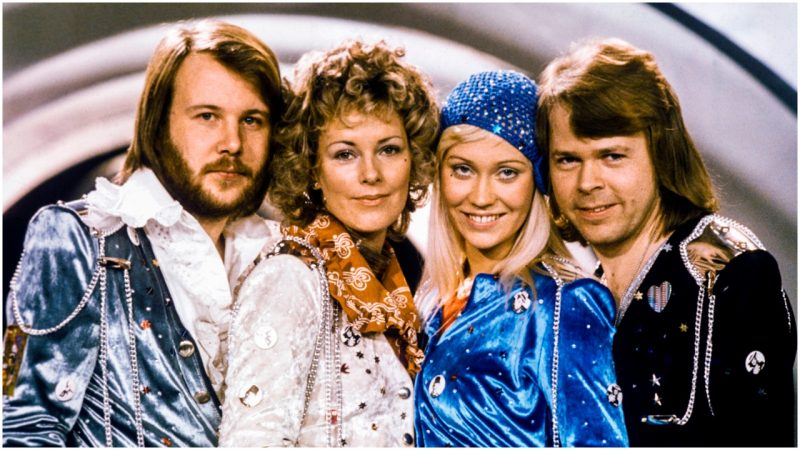As the box office receipts for Mamma Mia! Here We Go Again pour in — $35 million worth of tickets sold in its opening weekend in the United States, and $76 million around the globe — those who adore the movies pay homage to the commercial success of the Dancing Queen of move musicals.
But it’s more than just a well-tooled juggernaut. Many fans talk about the unabashed corny delights of the two Mamma Mia! movies. The word joy is often used. And then there is the Spandex. The sequins. And now … Cher.

Some were surprised when Oscar winner Meryl Streep took the lead role in the 2008 film. But she said they shouldn’t be. “It’s a requirement of popular culture that you strike an ironic distance,” Streep told The Guardian. “This doesn’t. It’s a film about women and their whole experience being hopeful and youthful, and older, and suffering the regrets you have over a long life. It’s visceral and I love that.”
The theatrical production of Mamma Mia!, appearing in countless countries, has grossed more than $2 billion worldwide since 1999 and is the ninth longest running show in Broadway history.

Anyone would assume that the theatrical production had the easiest gestation possible. Monster pop-music hits meet romantic story equals automatic smash, correct? But the saga of Mamma Mia! is considerably more complicated.
The Swedish foursome ABBA came to fame in 1974 when they won the Eurovision song contest with “Waterloo.” The group had formed in 1972: Bjorn Ulvaeus as a folk-involved guitarist; Benny Andersson as a Beatles-influenced organist; Agnetha Faltskog, a soprano who achieved success before ABBA; and Anni-Frid Lynstgad, a Swedish pop star mezzo-soprano. They also became two married couples during the 1970s (they both divorced later). Andersson and Ulvaeus wrote the lyrics and music.

ABBA experienced an astounding run of success throughout the 1970s and into the early 1980s: Following “Waterloo” came the hits over the next eight years and more: “S.O.S..” “Knowing Me Knowing You,” “Mamma Mia,” “Money, Money, Money,” “Dancing Queen,” “Thank You for the Music,” “Name of the Game,” “Take a Chance on Me,” “The Winner Takes it All,” and “Super Trouper.”
But there would be no Mamma Mia! without British producer Julie Craymer. She was the one who came up with the germ of the idea, after meeting Andersson and Ulvaeus when they were working on Tim Rice’s play Chess.
Live Performance from “Mamma Mia”
She wanted to take a group of ABBA songs written over a decade and build a story around them and turn it into a play. Of course, most of the time it proceeds the other way: First comes the story, then the songs written to fit it. This fell more into the category of “jukebox musical.”

She set herself a difficult task.
Craymer “spent a decade convincing Benny Andersson and Bjorn Ulvaeus to trust her with the rights to ABBA song’s before Mamma Mia! debuted on the London stage in 1999,” as Deadline put it.
When asked why the group was so resistant to her idea, Craymer said in an interview, “They were moving onto other things. ABBA was incredibly successful. They didn’t need a show that was going to damage their canon of work. Bjorn and Benny wanted reassurance that it wasn’t going to be the story of ABBA or a tribute show.”

In 1997, they moved closer to agreeing to give the songs to Craymer, but with the stipulation that none of those songs be changed.
It was the song “The Winner Takes It All” that had made Craymer believe there was a narrative to be found. “It is the song that I felt was intended for an actress to sing on the stage, near the end of the show, but back then I didn’t know what the show would be. But I knew that those lyrics mapped a roller-coaster of emotions about a breakup. The woman has been rejected, betrayed even. I developed a curious interest in what she was saying. I wanted to understand.”

In the film, Meryl Streep’s singing “The Winner Takes It All” to Pierce Brosnan, the lover who left her 20 years ago, is a highlight. The video clip of the song has been watched 3 million times on Youtube.
Ulvaeus, who wrote the lyrics to “The Winner Takes It All,” recognizes the poignant song’s effect on listeners but always insists that it was not written to describe his own divorce from Agnetha Fältskog. However, some people believe it does capture the pain of their breakup. Of the group, Fältskog is the least involved in Mamma Mia!, though not necesssarily because she doesn’t like the show. She is known to be phobic of flying and nervous of performing, and the ABBA fame was stressful. She is occasionally spotted at Mamma Mia premieres but seeks privacy.

Mamma Mia! was ultimately the product of the creative efforts of three women: Craymer, director Phyllida Lloyd, and playwright Catherine Johnson. It was Johnson who came up with the idea of a mother and daughter and a wedding, three men from the mother’s past — all the characters that audiences love.
Read another story from us: The London Wedding of Roman Polanski and Sharon Tate
The four members of ABBA have not performed together since 1982. The two men are involved with Mamma Mia!, among other projects. They sometimes attend auditions for the leads of the musical; and they took a role in selecting the musicians for the London production.
Phyllida Lloyd said, “Mamma Mia! was the musical Benny and Bjorn didn’t realize they’d written.”
Nancy Bilyeau, a former staff editor at Entertainment Weekly, Rolling Stone, and InStyle, has written a trilogy of historical thrillers for Touchstone Books. For more information, go to www.nancybilyeau.com.
